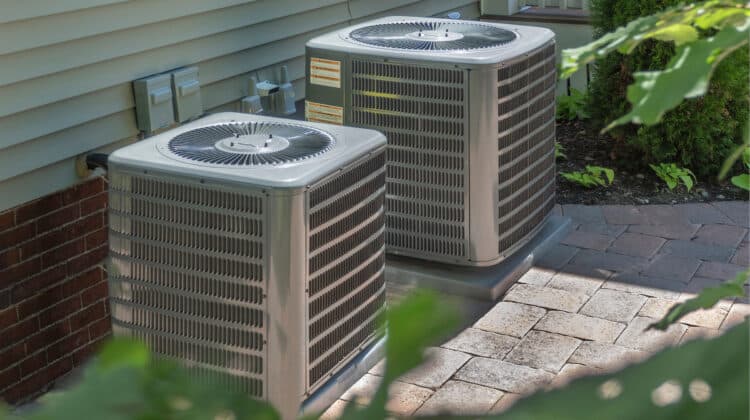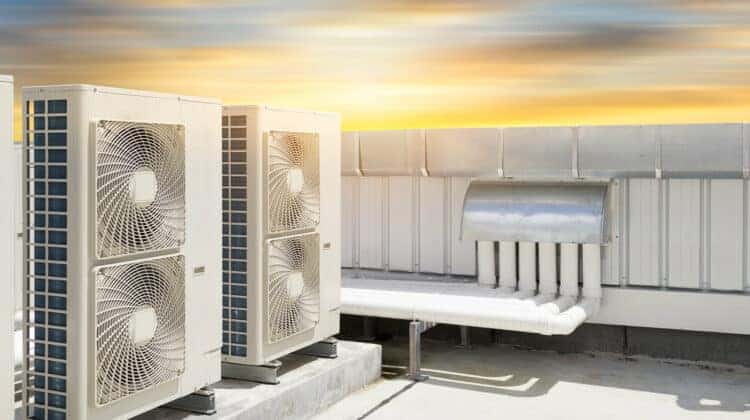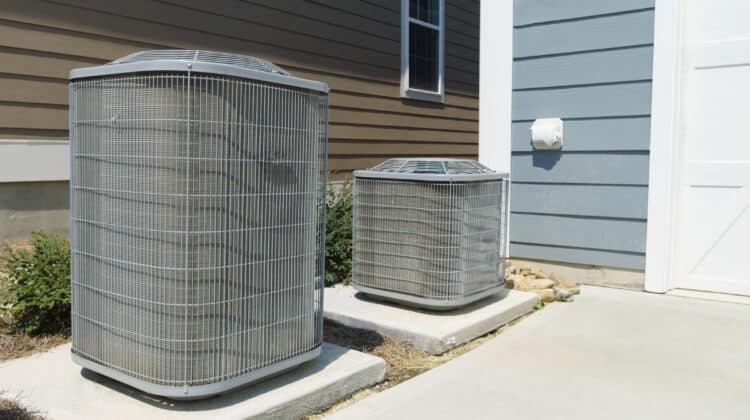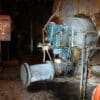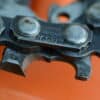When looking for service providers for their water heaters, many homeowners ask: does HVAC include water heater systems? A heating, ventilation, and air-conditioning unit are the three basic components of the HVAC system. In addition, contemporary systems have an air filter and cleaning component. In most residential structures, heating is provided by a furnace or a boiler.
There is a specific heating element in your HVAC system. A water heater appears to provide a similar function. If you’re not conversant with the operation of these two items, you’re undoubtedly asking whether an HVAC structure contains a water heater.
In this article, you will discover the ways HVAC systems functions with water heaters to offer your home both heat and hot water. There will also be tips on how to maintain such systems in order to improve their efficiency and make them last longer. In addition, we will discuss the relationship between the plumbing systems and HVAC.
Table of Contents
HVAC Systems that involves components of a water heater
The function of a water heater is to heat the water that runs through your home’s taps, showers, washing machine, and dishwasher. The HVAC system heats cool and regulates the air within your home while also assisting with ventilation. Certain HVAC systems, however, have elements that heat water as well.
Your HVAC system contains a unique heating element. A water heater looks to serve a similar purpose. If you’re not aware of how these two devices work, you’re probably wondering if an HVAC system has a water heater.
In this article, you will find out the methods with which the HVAC systems and water heaters work to provide hot water and heat to your home.
Also, we will explore tips for maintaining such systems in order to increase their efficiency and lifespan. The connection between HVAC and plumbing systems will be explained in subsequent paragraphs.
HVAC units that include water heater functions
Heat pump water heater (Hybrid Water Heater)
Heat pumps typically cool indoor and heat rooms and is an essential component of the HVAC system. A heat pump, which is also an HVAC system, on the other hand, can be used to heat water.
A hybrid water heater, often known as a heat pump water heater, is one such device.
That said, here’s the method with which a heat pump water heater functions:
- A refrigerant is contained within the device’s evaporator coil. It absorbs heat by absorbing hot air from its environment.
- The trapped heat is then transferred to heat up water in an enclosed tank to a specific temperature.
- Water is delivered to the and washing machine, taps, dishwasher, and faucets via pipes attached to the heating tank.
- The cold air is sent out by the heat pump.
Generally, heat pump water heaters save more energy than a traditional water heater that heats water using electricity. This is due to the fact that it does not produce heat to warm water; rather, it just transports heat from one location to another.
When compared to traditional storage water heaters, heat pump water heaters cost a lot more to purchase and install. However, the cheap operating costs of these particular hybrid devices compensate for the hefty initial prices.
Heat pump water heaters can be purchased as integrated equipment with water tanks. A heat pump can also be modified to function with the current basic storage water heater.
To increase the effectiveness of your heat pump, keep the following tips in mind during installation:
- They work by absorbing heat from the air in the surrounding; heat pump water heaters perform best when put in a warm or hot location.
- The furnace chamber is the best spot to install such a gadget.
- Heat pump water heaters keep the air surrounding it cool. Install within an area having a lot of heat.
- Make sure there are a minimum of 1,000 cubic feet of empty space around the heat pump. This prevents airflow inside and outside of the device from being restricted.
Hot water boilers
Boilers, as parts of HVAC systems, create heat for the house. Some boilers are also capable of heating water, which is subsequently routed to taps, dishwashers, showers and washing machines.
Here’s how a boiler functions to generate heat for interior spaces as well as hot water for cleaning and bathing:
- The boiler’s furnace produces heat by burning gas, oil, or coal.
- The generated heat warms a heat exchanger.
- The heat exchanger is what heats up the water that passes through it.
- Then, the heated water is distributed via pipes that run throughout the house. The heat emitted by hot water in those pipes heats the indoor air.
- When the water in the pipes returns to the boiler, the majority of its heat would have been lost. As a result, the heating procedure starts all over again.
- Some of the hot water passes between a coil after being heated by the exchanger to heat the cold water in an enclosed tank.
- The newly heated water from the tank goes through pipes to taps and showers, where it can be used for various household activties.
Steam boilers or furnace
In steam boilers, the furnace heats the water to convert it to steam. Steam passes through the pipes until it gets to the convectors or the radiators in your home’s rooms. Then they distribute heat throughout the room to keep it warm.
The steam cools and liquidizes into the water after losing heat. The water is then returned to the boiler furnace where it is heated once more.
Steam boilers can swiftly heat water. You can find them in both tank-less and tanked types. Cold water is stored in the tanks. Hot water is available whenever you need it with tankless units.
As a result, these devices heat water faster than tanked models. They also take up less room when installed. Some steam boilers include hot water cylinders as well.
Comparing the water heater to the HVAC systems/units?
Water heater and Heat pumps
Water heaters are intended to heat only a few gallons per minute on demand, often two to five gallons. With the average home utilizing 84 gallons of water per day, a tankless water heater system can deliver ample hot water when needed, conserving electricity.
Heat pumps or hybrid water heaters function similarly to standard water heaters but also go as far as cooling the air where they are kept. They have a storage tank, but instead of producing heat to warm the water, they transfer heat from the surrounding air, which makes them an HVAC system.
Water heater and hot water boilers
A water heater and a boiler appear to have the same functionality to many homeowners who aren’t specialists in the plumbing field. They both heat the water in the house. While their functions are similar, a water heater and a boiler serve different functions in the home and heat water in different ways.
Water heater and furnace
Are hot water heaters and a furnace the same thing? Nowadays, most furnaces also serve as hot water heaters. Furnaces heat the air and circulate it throughout your home while water heaters just heat the water and provide them to you warm or hot for usage.
How to maintain HVAC units that have water heaters
HVAC systems that function as water heaters are significant financial investments. You should ensure you adhere to the maintenance techniques provided by the makers to guarantee that the item operates efficiently and lasts for years.
The following are some maintenance procedures that will help your HVAC unit with a water heater last longer:
- Maintain clean and debris-free flues and vents, if they are present in the system. This allows for unrestricted ventilation and exchange.
- Periodically inspect for leaks. Water, power and fuel are all wasted as a result of leaks, which dramatically increase operating costs.
- Every month, check the water level. Using your HVAC unit with low water level can affect it
- Regularly lubricate the working components of your HVAC system.
- Every six months, drain out and flush the water in the system. Then carefully clean up the inner parts, taking note of the water heater tank especially to minimize mold growth and removes silt.
- Remove any lime or slimy buildup that occurs while hot water passes a mechanical system by de-scaling.
- Make sure your water heater’s hot pipe is properly insulated. This reduces heat loss and saves a lot of energy. To reduce heat loss, the heater should be well-insulated.
- Reduce the temperature of the water heater to conserve electricity.
